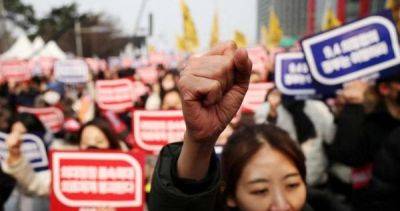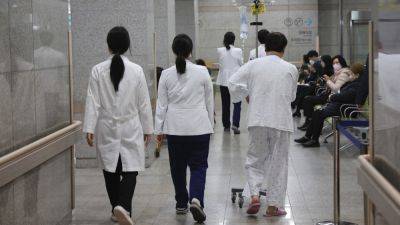South Korea sets new record for world’s lowest fertility rate despite spending billions to stem population slide
The average number of expected babies for a South Korean woman during her reproductive life fell to 0.72 from 0.78 in 2022, data from Statistics Korea showed on Wednesday.
This is far below the 2.1 children needed to maintain the current population of 51 million.
At this rate, South Korea’s population will nearly halve to 26.8 million by 2100, according to the Institute for Health Metrics and Evaluation at the University of Washington in Seattle.
“The number of newborns in 2023 was 230,000, which was 19,200 fewer than the year before, representing a 7.7 per cent decrease,” Lim Young-il, head of the Population Census Division at Statistics Korea, told reporters.
The 2023 crude birth rate – the number of newborns per 1,000 people – was 4.5, down from 4.9 in 2022.
Since 2018, South Korea has been the only member of the Organisation for Economic Co-Operation and Development (OECD) to have a rate below 1.
The South Korean government has made it a national priority to reverse the falling birth rate and in December promised to come up with “extraordinary measures” to tackle the situation.
Experts say there are multiple causes for the low birth rate, from high child-rearing costs and property prices to a notoriously competitive society that makes well-paid jobs difficult to secure.
The double burden for working mothers of carrying out the brunt of household chores and childcare while also maintaining their careers is another key factor, they say.
Meanwhile, ahead of elections in April, South Korea’s major political parties vowed more public housing and easier loans in an effort to stem population decline, aiming to allay fears of “national extinction” as fertility rates crumble.
The parties’ focus on population in their election planks







